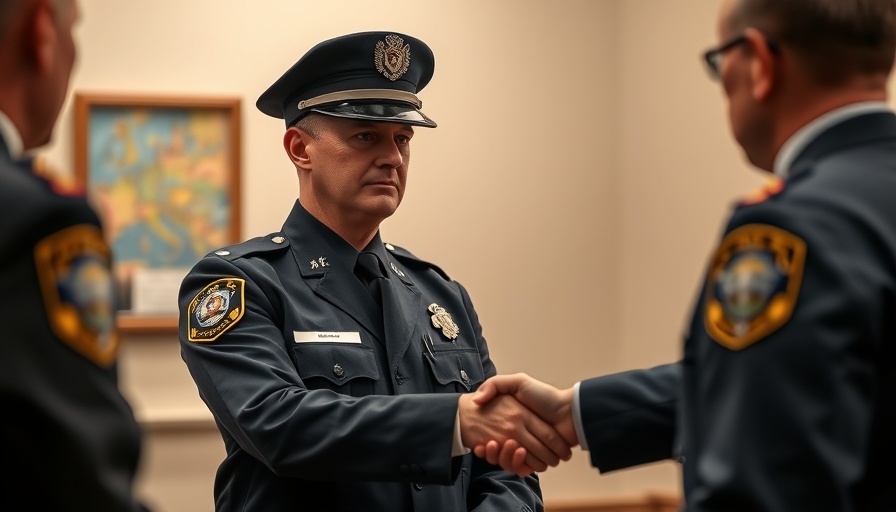
Tragic Loss: The Risks Facing Law Enforcement Officers
On April 21, 2025, Dawson County sheriff's deputy Jessie Perez made the ultimate sacrifice while protecting his community. Struck by debris from a passing commercial vehicle during a traffic stop, Deputy Perez's tragic death underscores the inherent dangers law enforcement officers face daily. Just eight months into his career with the Dawson County Sheriff’s Office, Perez had already distinguished himself not only as a deputy but also as a dedicated community servant with a history of service as an EMT and firefighter.
Understanding the Dangers of Routine Traffic Stops
Traffic stops might seem routine, but as Deputy Perez's death illustrates, they present significant risks to officers. According to the DPS spokesperson Steven Blanco, traffic-related incidents are one of the most hazardous tasks law enforcement performs, often requiring officers to approach stopped vehicles while vehicles zoom by on the roadway. Awareness of such risks has led to initiatives advocating for move-over laws, designed to protect law enforcement and emergency responders from oncoming traffic.
Community Response and Grieving Process
The community reaction to Deputy Perez’s passing has been one of profound sorrow. Statements from various local agencies, including the O’Donnell Volunteer Fire Department and Lynn County Healthcare System, highlight the deep respect and admiration felt by those who knew him. Their tributes emphasized not only his commitment to public service but also the void his death leaves in the community. As people come together to honor his legacy, it becomes apparent that the loss extends beyond the badge; it resonates with both the community he served and the broader law enforcement family.
The Need for Enhanced Officer Safety Protocols
This tragic incident cries out for a critical examination of officer safety protocols during traffic stops. With the dangers of roadway interactions exceedingly evident, it raises questions about existing measures and how they can be improved. Law enforcement agencies must invest in better visual alert systems, officer training on situational awareness, and community awareness campaigns to mitigate risks to officers on these calls. Strategies such as better use of technology, including body cameras and patrol vehicle designs that protect officers on traffic stops, can be useful in addressing challenges in operational safety while promoting officer wellness and mental health.
Building Stronger Community-Police Relationships
As police departments grapple with enhancing safety measures, establishing stronger community relations is also vital. Deputy Perez’s legacy can serve as a catalyst for fostering communal respect for law enforcement and understanding the complexities of officers' duties. Community engagement programs could bridge gaps between officers and residents, allowing for dialogues that highlight the importance of officer safety, the challenges of policing, and the vital responsibilities carried by law enforcement personnel.
Conclusion: Advocating for Change
Deputy Perez's passing is a heartbreaking reminder that with the badge comes risk. As community members reflect on his life and service, it should serve as a call to action for law enforcement and safety advocates to reassess strategies in ensuring the well-being of officers. If improvements can be made to protect those who are sworn to protect us, then Deputy Perez’s sacrifice will not have been in vain. Let's honor his legacy by pushing for policies and training that prioritize officer and community safety together.
 Add Row
Add Row  Add
Add 

 Add Element
Add Element  Add Row
Add Row 




Write A Comment